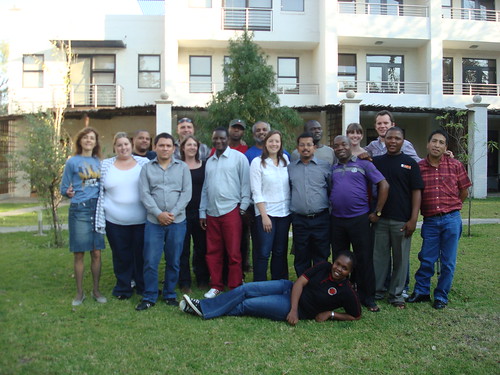SOCIAL MOVEMENTS AND GRASSROOTS GROUPS - October 2012

New Members of the Social Movements Working Group
In recent months, the Social Movement Working Group (SMWG) has continued to expand its membership and strengthen its collective work. Several social movements have joined the Working Group, including the National Fisheries Solidarity Organization (Sri Lanka), the Coordinadora Andina de Organizaciones Indígenas (Andean region), Ekta Parishad (India), Take Back the Land (U.S.A.), Centro de Capacitación y Desarrollo de la Mujer y la Familia (Bolivia) and Abahlali baseMjolo (South Africa). ESCR-Net welcomes these social movements to the Working Group and looks forward to their participation in the work ahead.
Human Rights and Land
On May 23, 2012, ESCR-Net published a Working Paper in close collaboration with the International Council on Human Rights Policy. “Seeding Hope? Land in the International Human Rights Agenda: Challenges and Prospects” represents a contribution by the Network to build on the work of many members to promote a stronger international recognition of human rights issues related to land. The paper emphasizes the need to understand and elevate the demands of social movements struggling to claim a right to land in international advocacy efforts and beyond. The paper is currently available in English and will soon be available in Spanish and Portuguese.In addition, ESCR-Net continues to coordinate ongoing support for social movements challenging development-induced displacement by drawing on the knowledge and experience of Network Members and partners and facilitating collaboration in solidarity with these struggles. See here for more information about the project: Strategic Human Rights Support for Social Movements and Grassroots Organizations Challenging Development-Induced Displacement.


Documenting Experiences of Social Movements Utilizing Human Rights
In collaboration with Terra de Direitos, the Movement for the Survival of the Ogoni People (MOSOP), Tebtebba: the Indigenous Peoples' International Centre for Policy Research and Education, the Nairobi Peoples Settlement Network and the Plataforma DhESCA, ESCR-Net has developed a manual to document the experiences and lessons learned by social movements who have used human rights in their struggles for land. This initiative grew out of discussions during the 2010 Solidarity Visit and Human Rights Mutual-Learning Workshop of the Social Movement Working Group held in Brazil. The Manual documents the struggle of the Ogoni indigenous people in Nigeria to defend their rural lands in the face of devastating oil pollution; the utilization of human rights for community organizing in informal urban settlements; strategies by the Brazilian ESCR Platform in Brazil to address specific cases of human rights violations through a rapporteur mechanism; and the experience of the international indigenous rights movement in the development and adoption of the UN Declaration of the Rights of Indigenous Peoples. Currently under review by external readers, the Manual will soon be available in English, Spanish and Portuguese.
For more information on how to get involved, contact Thea Gelbspan tgelbspan[at]escr-net.org
